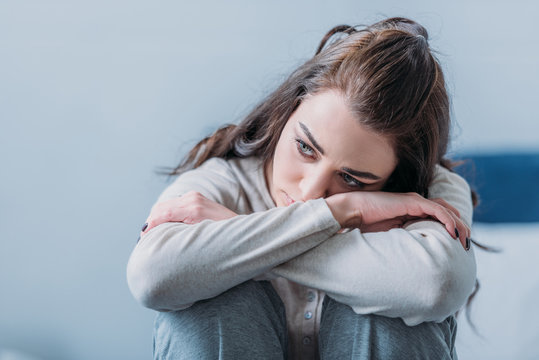Uncovering Anxiety’s Effects on Mental Health
In all of its manifestations, anxiety is a common and frequently misinterpreted aspect of the human condition. It can have significant consequences on mental health in both covert and overt ways. Its numerous symptoms, which impact people from all walks of life, range from the palpitations of social anxiety to the pervasive fear of generalized anxiety disorder. In this piece, we examine the intricacies of worry, revealing its influence on psychological well-being and investigating methods for comprehending and managing this ubiquitous ailment.
Daftar Isi
Recognizing Anxiety as a Complex Phenomenon
There is more to anxiety than merely being tense or concerned. It includes a range of feelings, ideas, and bodily experiences that can cause anything from minor discomfort to crippling fear. Fundamentally, anxiety is the body’s normal reaction to stress; it is a survival mechanism that sets off the body’s “fight or flight” reaction when it perceives a threat. However, worry can interfere with day-to-day activities and negatively impact general wellbeing when it becomes persistent or out of proportion to the circumstances.
Anxiety’s Various Faces: Symptoms and Types
There are many different types of anxiety disorders, and each has its own set of signs and causes. The hallmarks of generalized anxiety disorder (GAD) include excessive and ongoing concern over ordinary occurrences, coupled with somatic symptoms including tenseness in the muscles, restlessness, and trouble focusing. The primary cause of social anxiety disorder (SAD), which results in avoidance behaviors and social isolation, is an extreme dread of being evaluated or questioned in public. Frequent, intense panic episodes that are frequently accompanied by feelings of imminent disaster or of losing control are the hallmark of panic disorder.
The Effects of Anxiety on Mental Health
Anxiety can have a significant negative influence on mental health, impacting people emotionally, cognitively, and behaviorally. Depression can result from persistent anxiety because the continual assault of fear and concern weakens one’s willpower and feeling of hope. Additionally, it may impair cognitive function, making it harder to focus, decide what to do, or recall information. Changing one’s behavior, such as avoiding particular people or situations, can make anxiety worse and prolong a distressing cycle.
Beyond the Mind: The Effects on the Body
Anxiety is not limited to the head; it can also cause physical symptoms that negatively impact the body. Numerous physical health conditions, such as gastrointestinal diseases, immune system damage, and cardiovascular problems, have been related to long-term anxiety. The body’s stress response system is constantly triggered, which can exacerbate inflammation, impair immunity, and raise the chance of chronic illnesses like diabetes and hypertension.
Breaking the Silence: Getting Help and Overcoming Stigma
Anxiety is common, but it’s frequently surrounded by stigma and false beliefs. Many anxious people are reluctant to ask for assistance out of concern about criticism or being seen as weak. On the other hand, encouraging awareness and healing around mental health issues requires breaking the taboo. For those who are experiencing anxiety, reaching out to friends, family, or mental health experts can be a lifeline, giving them access to treatment choices like medication or therapy as well as validation and assistance.
Empowering Techniques: Managing Anxiety
Although there isn’t a one technique that works for everyone to manage anxiety, there are a lot of tactics people may use to deal with its impacts and take back control of their life. Deep breathing exercises and other mindfulness techniques like meditation can help reduce stress and build mental calmness. Regular exercise, eating a balanced diet, and getting enough sleep are further strategies to improve mental health and lessen the negative effects of anxiety on the body.
Developing Resilience: Increasing Mental Health Knowledge
A person’s ability to take control of their mental health and de-stigmatize anxiety depends heavily on education and knowledge. We can establish supportive environments where those impacted by anxiety feel comfortable asking for assistance and support by promoting an atmosphere of open communication and understanding. In order to build resilience, one must treat the underlying causes of anxiety, such as trauma, social isolation, or systemic stresses, as well as the symptoms of the condition.
In conclusion, uncovering anxiety to promote understanding and healing
Anxiety is a widespread and intricate condition that impacts millions of people globally. It can have a significant negative effect on mental health, resulting in emotional misery, bodily discomfort, and difficulties going about everyday tasks. Through revealing the hidden aspects of worry and illuminating its diverse expressions, we can cultivate increased compassion, consciousness, and comprehension of this prevalent yet frequently misinterpreted ailment. By providing individuals with knowledge, support, and compassionate care, we can enable them to effectively manage the difficulties associated with anxiety and start the process of healing and building resilience.

